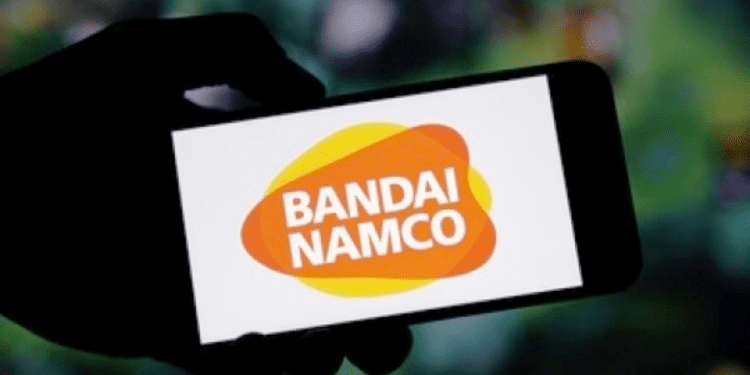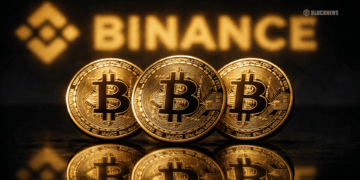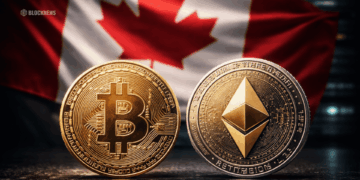Renowned gaming industry giants Bandai Namco and SEGA are eyeing mainstream blockchain gaming adoption. The Japanese game publishers plan to implement blockchain into their future titles and will not let gamers’ strong negative opinions go against their decisions. However, the companies have not addressed if they will apply it to existing internal properties (I.P.s) or will only add it to brand-new games.
The 2022 Tokyo Games Show featured impressive upcoming games, although none featured fully-fledged blockchain games. Ryo Matsubara, an Oasys representative and director, pointed out that Bandai Namco, SEGA, and Square Enix see blockchain gaming as a long-term business model rather than following the trend. Oasys is a blockchain project that provides proof-of-stake mainnet for gaming.
Even without confirmation that the publishers will add NFTs to existing games, Matsubara suggests that they should generate brand-new I.P.s for that instead, which can summon fresh faces and a different demographic.
Blockchain Model is Still New
According to Matsubara, this new business model for gaming will need to “mature” before the mainstream audience begins to accept its existence in their favorite hobby. It should slowly grow like how downloadable content (DLC) needed to naturally include itself in games during the 2010s, with Microsoft debuting it to the public.
He also noted a significant barrier that many GameFi projects face – profit over game experience. Decentralized games rely too much on the market price of in-game tokens than their stable values.
This dilemma may deter the main reason for people to participate: the gameplay. Without good gameplay and high replay value, players would only feel like they do a daily grind that feels more laborious than genuine exploration and learning.
Undoubtedly, the gaming industry is one of the most profitable sectors in the entertainment business today. The ones calling the shots are looking for new ways to earn money besides consumers purchasing a copy of the game and its optional microtransactions.
Blockchain gaming provides a sweetener for buyers by guaranteeing full ownership for purchasing a microtransaction as a non-fungible token. GameFi developers are looking for ways to show that consumers own a unique item that no other person in the metaverse economy has. This allows the object to appreciate over time, increasing its value and rarity, which the owner can sell in the future.
Current Feedback from the Community
According to Luke Sillay, a lead community manager for Australian game company Blowfish Studios, people want to play fun games, not because they are hustling to earn tokens. They see gaming as a way to relax and escape reality, not make money.
That said, several well-known gaming companies attempted to share the “beauty” of NFTs in video games. Ubisoft did so with their 2021 YouTube trailer of Ubisoft Quartz: a blockchain project that was supposedly a platform for NFTs in existing games such as Ghost Recon Breakpoint. The video was met with overwhelmingly adverse reactions, so Ubisoft removed it and announced on April 2022 that they would not continue with the project.
Cult-classic S.T.A.L.K.E.R. returned with an announced sequel from Ukrainian game developer and publisher G.S.C. Game World. S.T.A.L.K.E.R. 2: Heart of Chernobyl initially would include NFTs, but the gaming community showed their opposition immediately. G.S.C. Game World removed all NFT announcements, apologized to their fans, and confirmed that part 2 would never include NFTs.
Mojang Studios, the developer behind Minecraft’s smash-hit survival crafting game, also supposedly included support for NFTs. NFT Worlds, the platform responsible for minted Minecraft tokens, found themselves lost after Microsoft, the game’s publisher, banned non-fungible tokens in all Mojang I.P.s. Microsoft did not fully explain the prohibition of NFTs, but it received praise from the general gaming public for the decision.
Square Enix, the company behind Final Fantasy, Tomb Raider, and Hitman, was the first to receive negativity after C.E.O. Yosuke Matsuda wrote an open letter about the company implementing NFTs in its future games.
While we may not see tokens in games like Tekken, Pac-Man, Dragon Ball, Yakuza, Sonic, and Virtua Fighter, it would be interesting to see how the massive Japanese companies will utilize blockchain in their new I.P.s.














